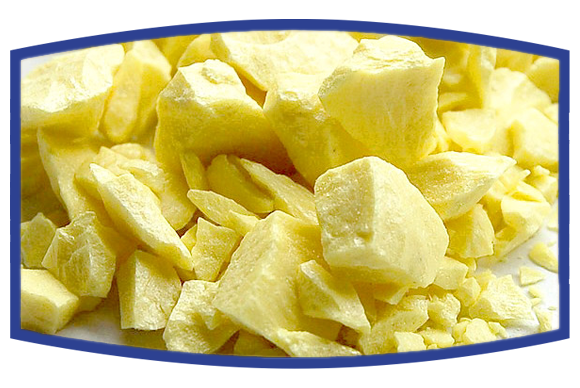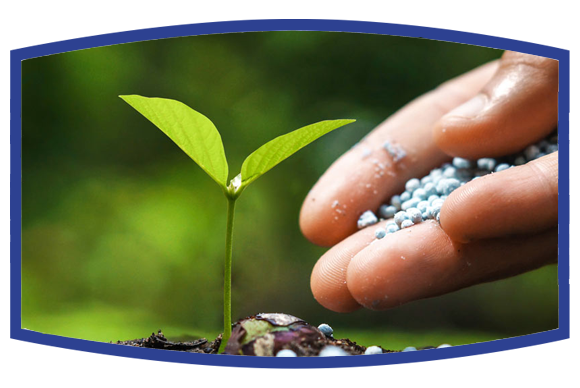Amonyum Sülfat

An effective and economic solution for pH, lime and plant nutrient shortcomings arising from soil as well as fungus and mildiou problems.
Joint works with experts who have academic experience on the subject reveal that when it comes to sulfur, not only quantity but also particle size is important as well in order to be quick and effective as in the product we provide you. In this context, analyses made in national and international organizations concluded the most appropriate sulfur content is powder sulfur with a sulfur content of more than 99.8% and a size of 0.150 mm as produced by Kimtar Kukurt.
Our experts will be happy to tell you the powder amount and time according to the type of your soil and plant.
- Is your soilLimey?
- Are the young leaves of plantsLight Green?
- Is your plantShorter than Normal?
- Is the earth pH valueHigher than 7.5?
- Do your plants haveFungus or Mildiou problems?
Solution;
SULFUR USAGE IN AGRICULTURE
Sulfur is applied in order to ensure the soil pH remains within normal limits for long periods.
SULFUR APPLICATION
It quickens the result if the soil temperature is 5-6 degrees or above. Application should be made in summer season for greenhouses that are not heated. Application can be made at any season in greenhouses that are heated. Sulfur does not have a negative effect on the plant. No quarantine application is required during the soil decomposition process or during application periods. Cultivation can be commenced right after sulfur application. If really necessary, sulfur can even be applied while the plants grow on the soil. This application is also useful for preventing the fungus in soil as well as bacterial plant diseases. Adequate moisture shall be available in the soil during sulfur application.
Soil that is not moist must be irrigated first, and the sulfur must be applied after the soil is tempered. The trace element shortages observed on the plant usually occur because of the high pH. Please be reminded that one unit of reduction in pH increases the trace element intake 100 times more. When sulfur is applied to the soil, pH is reduced, phosphor and other trace elements intake is facilitated, insoluble compound formation as observed in high pH is reduced, physical structure of soil is improved, penetration (water permeability) is increased, and the soil becomes softer. It has been observed that reducing the pH value of the soil causes the nutrient elements which are in useless form in the soil to become useful, and this sort of creates a fertilization effect.
APPLICATION ON SOIL
The sulfur amount to be put on the soil in order to reduce the pH value thereof is provided below. The capillary roots of the plant are found densely beginning from 20 cm of the soil down to 60 cm. The taproot of the plant, however, goes down to 1,5 - 2,0 m depending on the soil structure. Therefore the pH value of the soil is required to be reduced at the 20-30 cm soil layer. Farm soil should be mixed in order to facilitate application of sulfur in the form of spreading in the farm, and then it should be applied in the form of spreading or strip (furrow). It is okay to apply sulfur with the initial fertilizer. The sulfur laid in the soil causes the pH value of the soil to drop within a couple of months depending on the soil temperature, sulfur bacteria amount in the soil and soil humidity. How many years later should sulfur be applied to the soil whose pH value has been reduced to the desired level depends on the quality properties of the irrigation water and the biological activity in the soil.
ITS FUNCTIONS ON THE PLANT
1. Used for reducing pH in high pH soil. 2. Has a good antiseptic (germicide) and antifungal property even on its own. 3. Breaks lime. 4. Prevents salinity. 5. Is a nutrient element. 6. Is contained in certain amino acids which are required for protein synthesis. 7. Increases resistance of the plant against diseases. 8. Enters synthesis of energy, hormone and certain enzymes.
Accelerates nitrite and carbohydrate metabolism. The need of plants for sulfur is almost the same amount with phosphor. However, sulfur fertilization is not applied much. Sulfur is usually used for reducing the soil pH and to improve the soil structure. Considering the fact that major part of the soil in Turkey is high in pH value, and even very high in some areas, it is obvious that supplying elemental sulfur while preparing the soil is very important.
SYMPTOMS OF SHORTAGE
1. Plants need sulfur just as much as they need phosphor. 2. Shortage of sulfur shows symptoms quite similar to nitrogen shortage. What separates nitrogen shortage from sulfur shortage is that contrary to nitrogen shortage, sulfur shortage is observed in young leaves. 3. Leaves fall and the bud dies. 4. Protein synthesis drops and loss of efficiency goes up.



